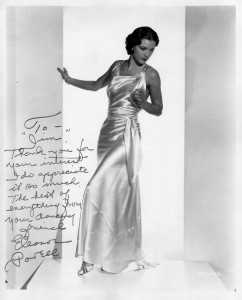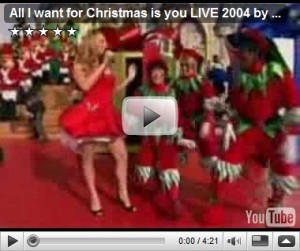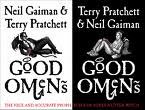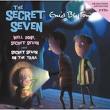
by Michelle Gagnon
So to end the year, I thought I’d close with yet another issue confronting the publishing industry: eBook rights. Ten years ago, these were rarely included in contracts, since the prospect of reading books in this format was still fairly far off on the horizon.
But we’re about to enter a whole new decade, by the end of which I suspect at least half of all books will be enjoyed on some form of eReader (and that’s a conservative estimate). Which makes the move by Random House last week pertinent to all of us, especially authors who have backlist books where eRights weren’t spelled out.
Here’s what happened, as detailed by the Author’s Guild:
“On Friday, Random House CEO Markus Dohle sent a two-page letter to many literary agents regarding e-books. Much of the letter is devoted to Random House’s efforts and investments to market traditional and electronic books.
On the second page, Mr. Dohle gets to the point. After noting that most of Random House’s backlist titles grant the publisher electronic book rights (we agree, since most backlist titles are from the past ten years, a period in which authors have generally licensed electronic rights in tandem with their print rights), he writes that “there have been some misunderstandings concerning ebook rights in older backlist titles.” He then proceeds to argue that older contracts granting rights to publish “in book form” or “in all editions” grant electronic rights to Random House.
The misunderstandings reside entirely with Random House. Random House quite famously changed its standard contract to include e-book rights in 1994. (We remember it well — Random House tried to secure these rights for royalties of 5% of net proceeds, a pittance. We called it a “Land Grab on the Electronic Frontier” in our press release headline.) Random House felt the need to change its contract, quite plainly, because its authors did not grant those rights to it under Random House’s standard contracts prior to 1994.
A fundamental principle of book contracts is that the grant of rights is limited. Publishers acquire only the rights that they bargain for; authors retain rights they have not expressly granted to publishers. E-book rights, under older book contracts, were retained by the authors.
There’s no need to take our word for this, however. A federal court in 2001 examined this precise matter in Random House v. Rosetta Books. Judge Stein of the Southern District of New York was unequivocal in his 10-page decision: authors did not grant publishers the e-book rights in the old book contracts at issue. Judge Stein specifically dismissed notions, raised by Mr. Dohle in his letter to agents, that the non-compete clauses of these old contracts in some manner acted to grant Random House electronic rights to the works, saying that this “reasoning turns the analysis on its head.” The court pointed out that the license of rights comes solely from the contract’s grant language, not from the non-compete clause, and that non-competition clauses, to be enforceable, have to be narrowly construed. Using the non-compete clause to secure future rights is unsustainable. An appellate court affirmed Judge Stein’s decision.
We are sympathetic with the difficult position the publishing industry is in at the moment. The recession has been tough on book publishing, as it has been on many industries. And everyone with knowledge of the dynamics of the industry properly fears that Amazon’s dominance of the online markets for traditional and especially e-books will give it a chokehold on industry profits. Difficult times, however, do not justify this attempt at a retroactive rights grab.
It’s regrettable and unhelpful that Random House has chosen to try to intimidate authors and agents over these old book contracts. With such a weak legal hand, it would be well advised to stick to its strength — the advantages that its marketing muscle can provide owners of e-book rights. It should also start offering a fair royalty for those rights. Authors and publishers have traditionally split the proceeds from book sales. Most sublicenses, for example, provide for a 50/50 split of proceeds, and the standard trade book royalty of 15% of the hardcover retail price, back in the days that industry standard was established, represented about 50% of the net proceeds of the sale of the book. We’re confident that the current practice of paying 25% of net on e-books will not, in the long run, prevail. Savvy agents are well aware of this. The only reason e-book royalty rates are so low right now is that so little attention has been paid to them: sales were simply too low to scrap over. That’s beginning to change.
If you have an old book contract in which you haven’t granted e-book rights, patience is likely to pay off. The e-book industry is still young — there’s no need to jump in. And we strongly suspect e-royalty rates are at a low-water mark.”
I feel the same way- can a publisher really justify a 75/25 split when the costs involved with bringing an eBook to market are dramatically less than those incurred by a mass market paperback? The fact that initially 5% was offered is almost laughable- clearly someone saw the writing on the wall. The question is, with the entire market beginning to shift in this direction, how can authors protect themselves? How do you prevent your backlist from being exploited? Since eBooks tend to retail for $5-$15, a more equitable distribution of the royalties means that even with this seismic shift, writers could still manage to earn a living from their work.
It’ll be interesting to see how this issue in particular shakes out. No matter what, I think that despite all the doom and gloom, this is an exciting time to be involved in the publishing industry. The world is changing rapidly, and the publishing industry is now being dragged into the modern millenium. It’s impossible to foresee exactly what the future will bring, but no matter what, the times they are a changin’.
Happy holidays to all of you. Thanks for taking time out of your lives this year to rant, discuss, and debate with us. I’m looking forward to more of the same in 2010.
Best,
Michelle
 It’s Christmas break here at the Kill Zone blog. During our 2-week hiatus, we’ll be spending time with our families and friends, and celebrating all the traditions that make this time of year so wonderful. We sincerely thank you for visiting our blog and contributing to our rants and raves. We wish you a truly blessed holiday season and a prosperous 2010. From Clare, Kathryn, Joe, Michelle, John G., John M., and Jim to all our friends and visitors, Seasons Greeting from the Kill Zone authors.
It’s Christmas break here at the Kill Zone blog. During our 2-week hiatus, we’ll be spending time with our families and friends, and celebrating all the traditions that make this time of year so wonderful. We sincerely thank you for visiting our blog and contributing to our rants and raves. We wish you a truly blessed holiday season and a prosperous 2010. From Clare, Kathryn, Joe, Michelle, John G., John M., and Jim to all our friends and visitors, Seasons Greeting from the Kill Zone authors.









